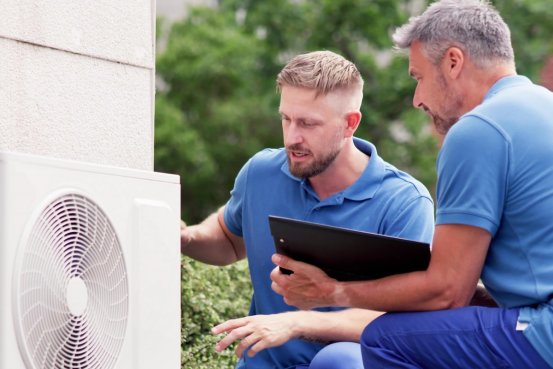HVAC Inspections: Why They Matter and What to Expect
A dependable HVAC system is essential for keeping your home comfortable year-round. But without routine checkups, small issues can snowball into expensive repairs. Regular HVAC inspections ensure your heating and cooling units run efficiently, safely, and reliably.
A dependable HVAC system is essential for keeping your home comfortable year-round. But without routine checkups, small issues can snowball into expensive repairs. Regular HVAC inspections ensure your heating and cooling units run efficiently, safely, and reliably.

What Is an HVAC Inspection?
An HVAC inspection is a detailed evaluation of your heating and cooling equipment, covering the furnace, AC unit, heat pump, ductwork, and thermostat. A licensed technician checks each component for performance, safety, and efficiency while identifying potential hazards such as leaks or faulty wiring.
Most homeowners schedule these inspections before high-demand seasons to make sure the system is ready.
Common inspection tasks include:
Measuring refrigerant levels and verifying airflow
Cleaning or swapping out air filters
Checking thermostat calibration and settings
Examining and tightening electrical connections
Looking for leaks or blockages in duct systems
Though exact steps may differ by provider, the purpose is always the same: spot problems early to avoid breakdowns and costly fixes later.
Why Schedule Regular HVAC Inspections?
Even high-quality HVAC systems experience wear with time. Ongoing inspections help catch issues while they’re still small. Benefits include:
Extended Equipment Life: Fixing minor problems promptly reduces long-term damage.
Greater Energy Efficiency: Systems that operate correctly use less power, lowering utility bills.
Healthier Air Quality: Clean filters and ducts reduce allergens, dust, and pollutants indoors.
Fewer Breakdowns: Preventative care decreases the likelihood of emergencies during extreme weather.
While inspections can’t prevent every problem, they greatly improve reliability and performance.
What Does an HVAC Inspection Cost?
Costs vary depending on the system, service provider, and region. On average, homeowners pay between $65 and $500 for an inspection. More complex systems or extensive services can raise the total.
Factors That Affect Price:
System Design: Advanced or multi-zone setups require more detailed checks.
Provider Expertise: Larger, established companies may charge more but often provide thorough service.
Seasonal Timing: Costs tend to rise in spring and fall when demand increases.
Repair Needs: Inspections don’t usually cover repairs—those are billed separately.
Some providers offer service agreements, bundling annual inspections with discounts on repairs—ideal for older or high-maintenance systems.
When Should You Book an Inspection?
The best times are spring (before AC season) and fall (before heating season). This ensures your system is ready before peak use.
If your equipment is 10+ years old, or you notice higher energy bills, strange noises, or uneven temperatures, it’s wise to schedule an inspection sooner—even for newer units.
Are HVAC Inspections Worth It?
The value depends on your system’s condition:
Newer systems: Inspections fine-tune performance and prevent early wear.
Older systems: Inspections help identify worn-out parts, reduce failure risk, and provide peace of mind.
Keeping detailed inspection records also boosts home resale value, signaling to buyers that the HVAC system has been well maintained.
Final Thoughts
HVAC inspections are an investment in comfort, efficiency, and safety. While they can’t eliminate every potential issue, they drastically reduce the chance of sudden breakdowns and expensive repairs.
To get the most benefit:
Schedule checkups before extreme weather seasons.
Hire licensed, reliable professionals.
Consider a maintenance plan for long-term savings.
With regular inspections, you’ll enjoy a longer-lasting, energy-efficient, and dependable HVAC system—keeping your home comfortable all year.

